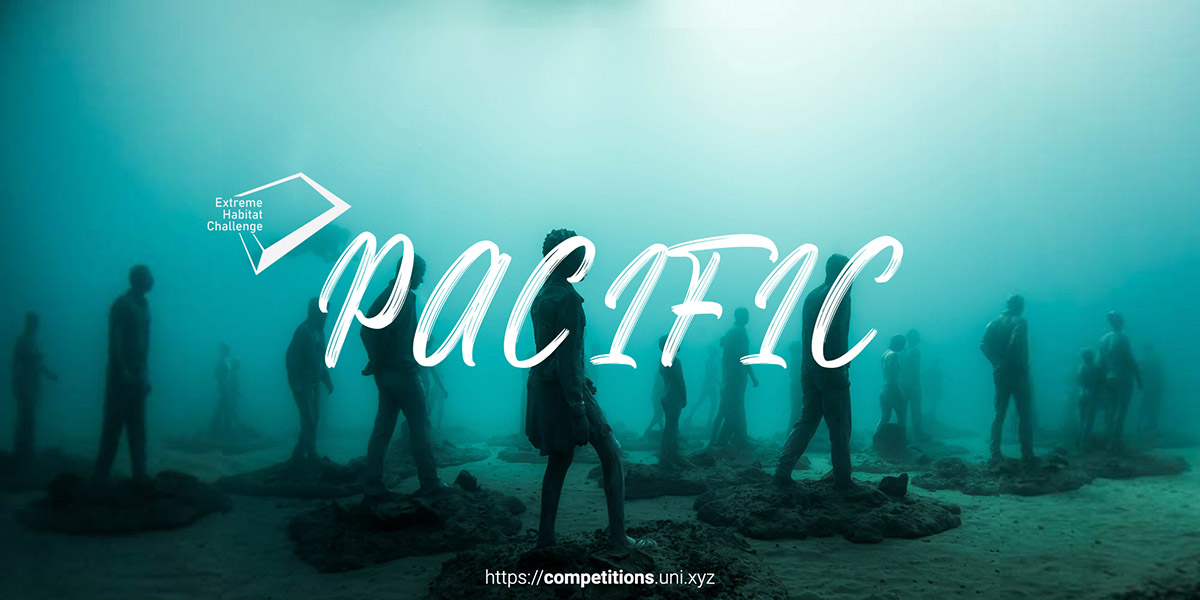Submitted by WA Contents
Call for registrations to Pacific - Extreme Habitat Challenge 2020
United States Architecture News - Mar 19, 2020 - 16:20 4053 views

Extreme Habitat Challenge 2020 is pleased to invite architects, designers, engineers, the student fraternity, and visualizers from around the globe to take part in its third edition of Extreme Habitat Challenge: Pacific. The Extreme Habitat Challenge (EHC) is one of the world’s most coveted competitions for habitat design. It recognizes exceptional ideas that redefine habitat design through the implementation of innovative ideas, techniques, construction, visual, programmatic and futuristic organizations through architecture as a tool.
As our cities grow, there are severe impacts visible to the quality of life due to overpopulation. Apart from that, the climate of the world is conclusively becoming harsher. Weather changes are becoming more rampant. We need resilient buildings. A limitless growth of population ultimately contradicts the motive of moving to the city, where people, instead of experiencing a better quality of life face the contrary throughout. All of these circumstances and vulnerabilities are only bound to grow in the future.
Cities cannot be overhauled overnight. But the past, especially the industrial revolution, has proven that our cities can, and they have in fact, changed. Technology being the fastest agent of change today, has almost displaced the need of living in a city - including repercussions like social isolation between people today. A new era of evolution has begun, which brings in technology to resolve even man-made disasters. Faster transportation techniques, connectivity & collaboration has made it possible to look beyond boundaries of cities. We take this opportunity to build a more responsible and innovative class of habitats which may be small but can definitely inspire change for the cities of tomorrow.
Challenge
The ocean and habitation in its depths has been endlessly fascinating in the past for marine biologists, divers, Aquanauts, even underwater archaeologists, and continues to be so. The oceans cover more than roughly 70% of the surface of the planet, and the depths of these waters still remain relatively unexplored, compared to their surface counterparts. Additionally, any discussion about future occupation and settling of the planet’s surplus population entails going higher up: be it through skyscrapers or a colony on space altogether. However, several researchers, marine biologists and aquanauts have indicated that it might after all be easier and much cheaper to settle on the ocean floor, albeit under the right conditions, since habitation at that depth and pressure of water has its own set of challenges, which this EHC wishes to leverage to draw futuristic designs under the surface of the ocean, fit for human habitation.
The Third Edition of Extreme Habitat Challenge invites participants to design a concept habitat for 6 people within a maximum area of 1000 sq. ft. in the Pacific Continental Shelf, which can be replicated to form an entire colony of at least 100 such units. The challenge invites ideas that push the boundaries of design using innovative habitat working models, materials, technology, close to zero land costs, and a nomadic yet rooted lifestyle.
Judges
Luis Rojo de Castro, Principal Partner, Rojo/Fernández-Shaw Architects, Spain
Begoña Fernandez-Shaw, Principal Partner, Rojo/Fernandez-Shaw, arquitectos, Spain
Rolf Ockert, Principal Architect, ROAR - Rolf ockert. Architect., Australia
Timeline
Launch February 15, 2020
Registration deadline: Aug 3, 2020 15:00 GMT
Submission Deadline: Aug 18th 2020
Public Voting begins: Sep 8th 2020
Public Voting ends: Oct 3rd 2020
Result Announcement: Oct 15th 2020
Prizes
Prize pool of worth 20,000$
First Prize: 5000$ (For students and professionals)
Runner Up: 6 x 1100$ (For students and professionals)
People’s Choice: 4 x 600$ (Open for all)
Honorable Mention: 12 x 500$ Each
Read more about eligibility, rules, fees on UNI's website. Download the competition brief here.
Top image courtesy of the competition.
> via UNI
